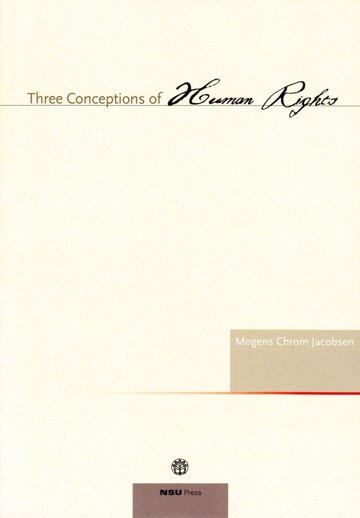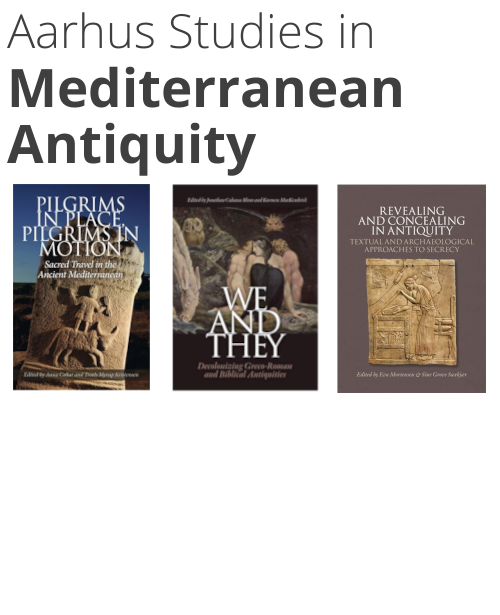
Three Conceptions of Human Rights
A part of the subject area Philosophy
More about the book
About the book
This study argues that we cannot reasonably keep on speaking as though there is only one conception of human rights. The consensus around certain core rights, though important, hides the fact that very different moral sensibilities are at work. The American and French declarations from the 18th century originate in a very different moral sensibility than the Universal Declaration of Human Rights from 1948. Their conceptions of humanity and its moral destiny are totally different. The former emphasize liberty while the latter emphasize human flourishing. The former enforces basic rules of mutual respect and leaves the rest to the individual's own choice, while the latter conceives human life as basically moral prescribing an ideal of human perfection. A third and very common ceonception today conceives human rights as a basic standard of human decency, which does not exclude other moral considerations. A basic regime of human rights leaves room for local choises in favour of liberty, human flourishing or something else, but no particular declaration seems to correspond to the view. This third view seems to be of a recent date and its theoretical foundation is such that it cannot claim any of the other declarations as its ancestors though it might be a "mutation" or misunderstanding of the classical 18th century declarations. A major part of this study traces the origin of the conception of rights behind the classical declarations, notably the Virginia declaration of 1776 and the French declaration of 1789. This conception will be contrasted with a perfectionist conception of morality, which only furnished itself with a conception of human rights very late. The third conception will be examined in the last chapter.
Table of contents
Préface 9
Introduction
Thèses and Discussion
A Short Terminological History
The Main Argument
Arguments for Greek and Roman or Earlier Sources
Arguments for Medieval and Modem Sources
Affinities
Liberty and Freedom
Chapter 1
Analytical Concepts
Principles of Action,Decision-Procedures and Prescriptions
Act-Prescriptions and Action Hieory
Principles of Action and the "Accoidion-Effect"
Normative Orders and the Distinction between Strict and Loose Duties
Permissive and Moralizing Normative Orders
The Free Space
Political Monism and Pluralism
Human Rights and Moral Theory
Chapter 2
General Approach
Context and Reason
Continuity and Ruptures: General Outline
Chapter 3
Moral Philosophy in Antiquity
Philosophical Life in Antiquiry
Moralizing Eudaimonisni
Stoic Moral Philosophy
The Ciceronian Position
Inflexible Universal Art-Prescriptions
Conclusion
Chapter 4
Christian Moral Pirilosophy
Mosaic and Early Christian Moral Thinking
Clement of Alexandria
Eusebius of Caesarea
Ambrose of Milan
Augustine of Hippo
The First Schoolmen
Canon Lawyers of the 12th Century
Conclusion
Chapter 5
Aristotle and Thomas Aquinas
Thomas Aquinas
Proportionalist Interpretation
Officiai Interpretation
Strict and Loose Duties
Indifferent Acts
Enforcement
Rights
Conclusion
Chapter 6
William of Ockham
Duns Scotus and Ockham
The Natural Good and the Moral Good
Right Reason and Prudence
Natural Law
Permissive Rights
Strict and Loose Duties
Consent and Common Utility
Ockham and Marsilius of Padua
Nominalism and Politics
Ockham and Thomas Aquinas
Chapter 7
From William of Ockham to Francisco Suarez
Pierre d'Ailly
Jean Gerson
John Mair
Jacques Almain
Revival of Thomism
Francisco Suarez
Conclusion
Chapter 8
Protestant Natural Law
Martin Luther
Hugo Grotius
Samuel von Pufendorf
Pufendorf and Richard Cumberland
Conclusion
Chapter 9
John Locke
Two Tracts on Govemment
Essays on Natural Law
An Essay Concerning Human Understanding
Writings on Toleration and Government
Locke and Richard Hooker
Locke and Thomas Hobbes
Conclusion
Chapter 10
The American and French Declarations of Rights
The American Declarations
The Ideological Origins of the American Revolution
The Origin of the French Declaration of the Rights ofMan and the Citizen
The Proceedings of the National Assembly
Chapter 11
Early Critique of the Declaration of Rights
Nonsense upon Stilts
Sophistical Rights of Man
The Rights of Egoistic Man
General Conclusion: Two Conceptions of Man and Morality
Chapter 12
Immanuel Kant and Modem Moral Philosophy
Kant's Early Theory of Moral Philosophy
The Formula of Universal Law
The Formula of Humanity
Autonomy and the Kingdom of Ends
The Highest Good
Modem Moral Philosophy
Chapter13
Human Rights Today
Three Conceptions of Human Rights
The Universal Declaration of Human Rights
Islamic Human Rights
Confucian Virtue Ethics
Pluralist Conceptions




